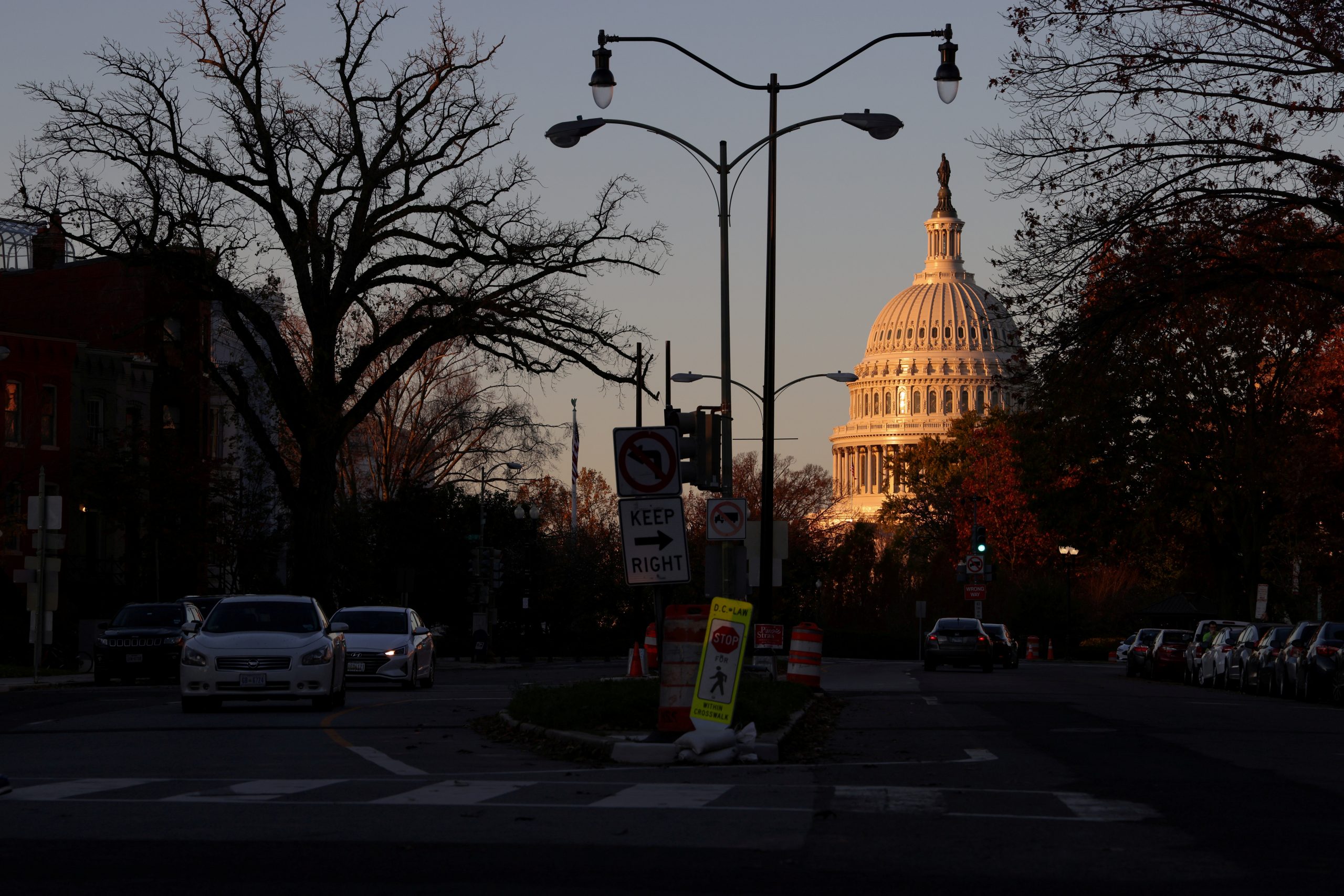The U.S. House of Representatives votes on Wednesday on a one-week stopgap funding bill to provide more time for lawmakers to reach a deal on both COVID-19 relief and an overarching spending bill to avoid a government shutdown.
The measure aims to prevent existing funds for operating federal programs from running out on Friday at midnight (0500 GMT Saturday) by extending current funding levels until Dec. 18.
After the vote in the Democratic-run House, the Republican-led Senate is expected to follow by the end of the week, then send the measure to President Donald Trump to sign into law.
The move will give Congress seven more days to enact a broader, $1.4 trillion “omnibus” spending measure, to which congressional leaders hope to attach a long-awaited COVID-19 relief package – if they can reach a deal on both fronts.
Members of Congress have not been able to agree for months on another round of aid to mitigate the effects of shutdowns to curb the spread of the virus, after quickly approving $3 trillion last spring.
The pandemic has since roared back to levels surpassing those seen early in the health crisis, with nearly 200,000 new infections reported each day and fresh shutdowns in some areas. More than 283,000 Americans have died of COVID-19 so far, and millions have been thrown out of work.
Senate Majority Leader Mitch McConnell proposed to break the deadlock on Tuesday by passing a targeted aid package including money for vaccine distribution and for small businesses, without what he said were the most contentious items – the liability protections for businesses desired by Republicans, and more aid to state and local governments desired by Democrats.
But Senate Democratic leader Chuck Schumer and others in his party rejected the offer, saying that failing to include fresh aid to state and local governments would put at risk the jobs of police, firefighters and other public workers on the frontlines of the pandemic fight.
Treasury Secretary Steven Mnuchin said on Tuesday he had presented to House Speaker Nancy Pelosi a $916 billion relief proposal that includes both money for state and local governments and liability protections for businesses.
That follows a bipartisan proposal for $908 billion in aid that has support from both moderate and conservative lawmakers. McConnell favors just $500 billion.
Pelosi and Schumer, in a joint statement late on Tuesday, downplayed the Trump administration’s $916 billion proposal, saying it “must not be allowed to obstruct the bipartisan Congressional talks that are underway.” They said those talks were making progress and “are the best hope for a bipartisan solution.”
BIDEN URGES QUICK ACTION
In recent days, there has also been talk among lawmakers of adding another round of direct checks to individuals, which both Pelosi and Schumer support. House Republican leader Kevin McCarthy told reporters he thought Mnuchin’s COVID-19 aid proposal had a provision for $600 checks. The previous relief package included relief payments of up to $1,200 per adult.
Senate Appropriations Committee Chairman Richard Shelby said on Tuesday he expected the stopgap bill to pass this week without additions.
He said negotiators from both chambers were still working on details of the broader spending measure, which includes 12 appropriations bills funding everything from agricultural and health programs to the Pentagon and State Department.
Both Pelosi and McConnell have said they want to see the fresh coronavirus aid attached to the omnibus bill.
Democratic President-elect Joe Biden has called on Congress to act immediately, noting that efforts to ensure early vaccination for COVID-19 by the outgoing Trump administration may stall otherwise.
A 90-year-old grandmother became the world’s first person to receive a fully tested COVID-19 shot in Britain on Tuesday, part of a global drive that poses one of the biggest logistical challenges in peacetime history.
(Reporting by Susan Cornwell; Editing by Scott Malone, Sonya Hepinstall and Peter Cooney)

























 Continue with Google
Continue with Google